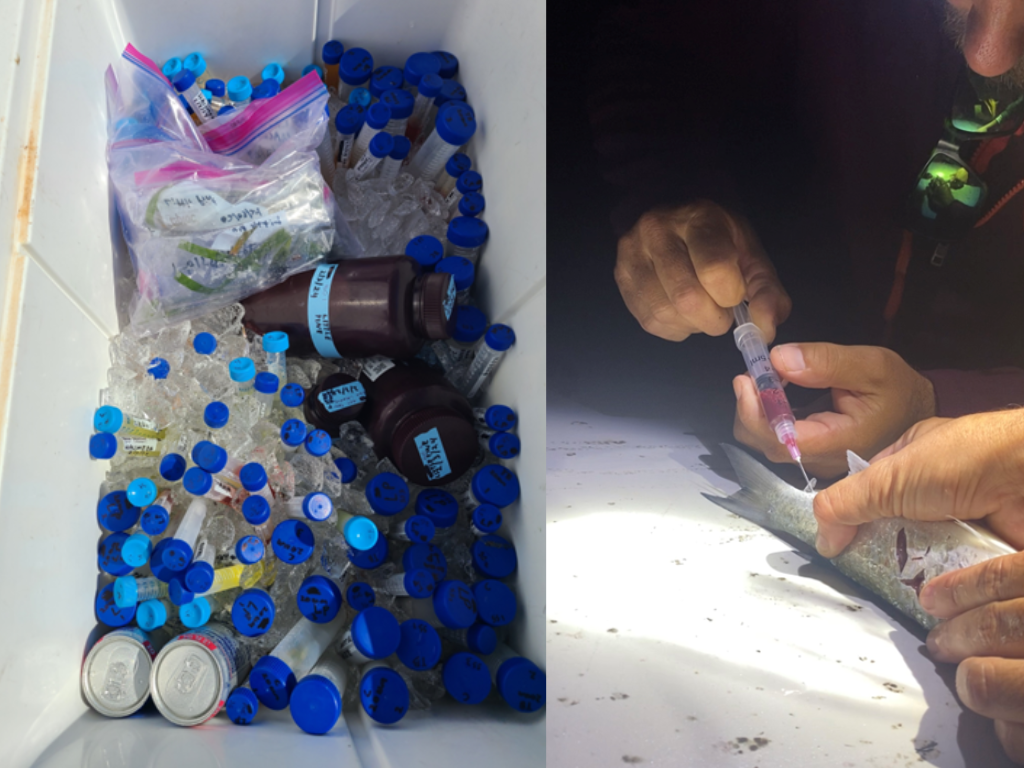Bonefish & Tarpon Trust (BTT) and the Lower Keys Guides Association (LKGA) first received a report of fish in the Florida Keys exhibiting abnormal behavior, colloquially referred to as “the spins,” on November 7, 2023. Fish with the spins experience loss of equilibrium causing them to swim upside down in repeated circles, often following a stressful or stimulating event. Since receiving the initial report, BTT and LKGA have received a total of 57 reports of symptomatic fish.
To date, 25 species have exhibited these abnormal behaviors, including silver mullet, tarpon, permit, snook, pinfish, bigeye scad, ballyhoo, jack crevalle, yellow jack, blue runner, southern stingray, mutton snapper, mangrove snapper, cubera snapper, lane snapper, leatherjacket, yellowfin mojarra, scaled sardine, toadfish, goliath grouper, blue striped grunt, redfish, lemon shark, Atlantic sharpnose, smalltooth sawfish, and spadefish.
Symptomatic fish have been observed consistently since November to present, and are more frequently observed at night. Effects seem to be localized, with approximately 77 percent of reports occurring between Boogie Channel and Bow Channel in the Lower Keys. Recently, more frequent reporting of spinning fish is occurring west of Bow Channel and Key West. And, three reports of fish exhibiting these behaviors have been reported within Miami, north of Biscayne National Park.
Led by BTT and LKGA, an inter-institutional collaborative research study to identify the cause of these symptoms began on January 11, 2024. Partners include Florida International University’s Fish Ecology Lab (FIU), University of South Alabama (USA), Florida Gulf Coast University (FGCU, Woods Hole, Florida Department of Environmental Protection (FL DEP), and Florida Fish and Wildlife Conservation Commission (FWC).
In this collaborative study, four lines of inquiry were explored. These include: contaminants and synthetic compounds (FL DEP, FIU), water column harmful algal blooms (FWC), benthic harmful algal blooms (FGCU, WHOI, USA), and fish health (FWC).
BTT and LKGA have coordinated and executed multiple coordinated sampling events to collect symptomatic fish and paired water samples. In these trips, BTT and LKGA hosted FWC staff and FGCU staff. To date, BTT and LKGA have collected 40 symptomatic fish, and 15 surface water samples. FGCU has collected 132 benthic samples. A summary of findings follows.
All sampled fish showed no virus or parasites, or any organ abnormalities.
No red tide was detected in surface water samples, and FL DEP did not detect common contaminants.
However, benthic harmful algal blooms samples identified elevated concentrations of the dinoflagellate in the genus of gambierdiscus co-occurring in areas where symptomatic fish are consistently present.
Gambierdiscus can have adverse impacts to fish. It produces ciguatoxin, which can bioaccumulate in predatory fishes and result in ciguatera poisoning in humans.
The organisms that cause ciguatera, and the prevalence of ciguatera, are generally more common in reef areas that are environmentally stressed. The stress is often reflected in algae overgrowing coral and reduction in coral cover. Sources of stress can include too many nutrients, warming sea temperatures from climate change, and overfishing of fishes and other organisms that eat algae.
At this time, it is unknown whether the co-occurrence of symptomatic fish and elevated concentrations of gambierdiscus are resulting in these fish exhibiting symptoms.
It is also unknown if this variant of gambierdiscus is producing cytotoxin that moves up the food web, produces any toxin, or produces a toxin that only affects fish through gill absorption.
Ongoing toxin testing will determine its overall impact and potential impact to fisheries.
Please read the latest updates here: www.bonefishtarpontrust.org/spinning-fish/




